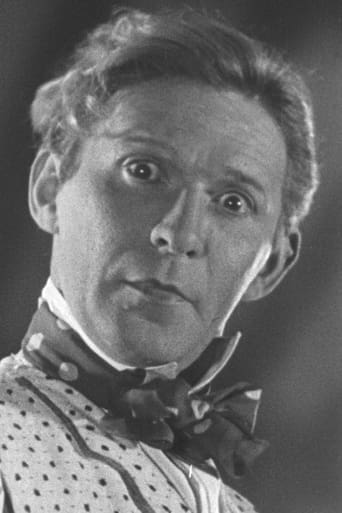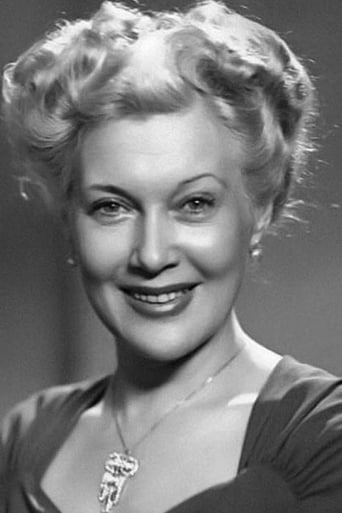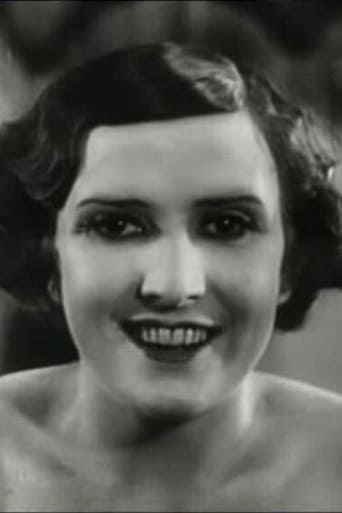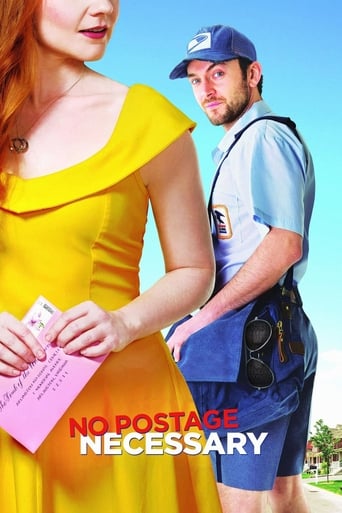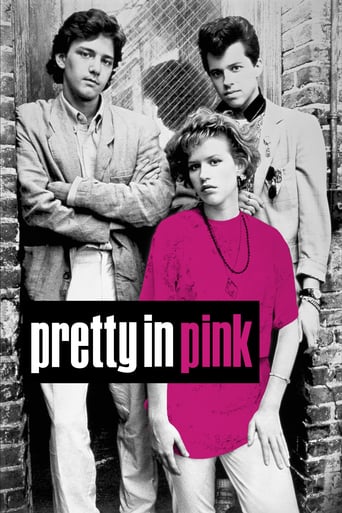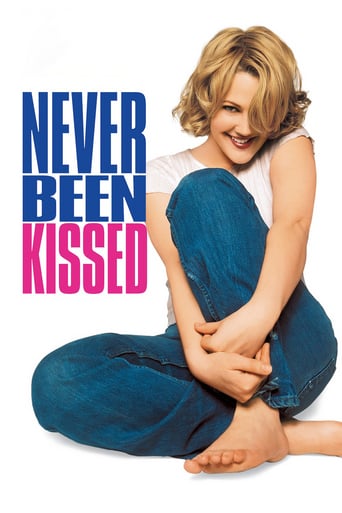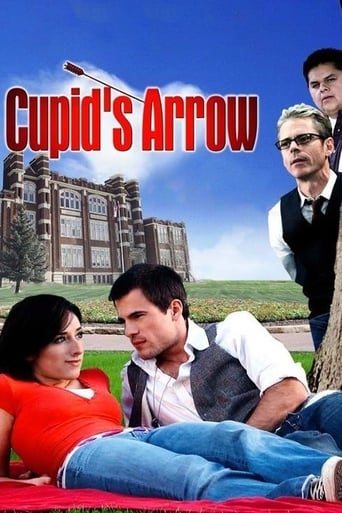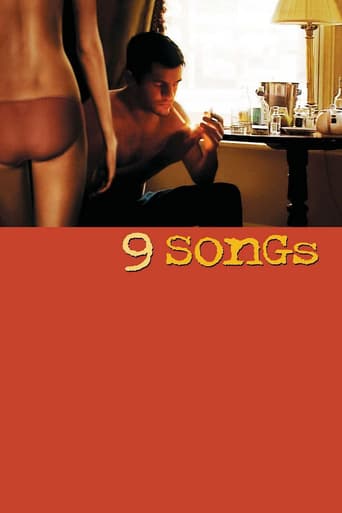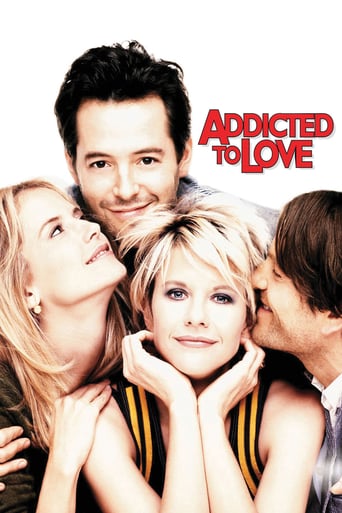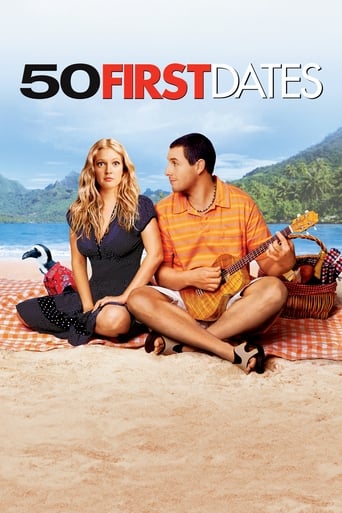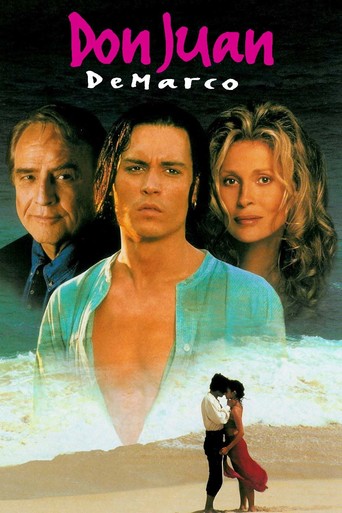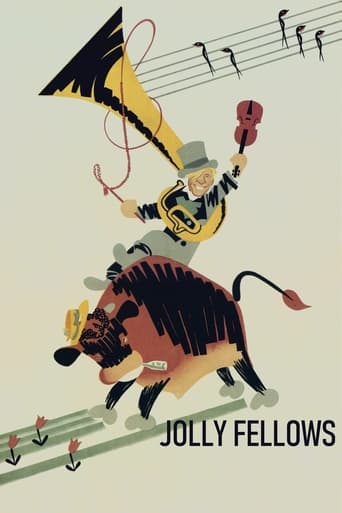
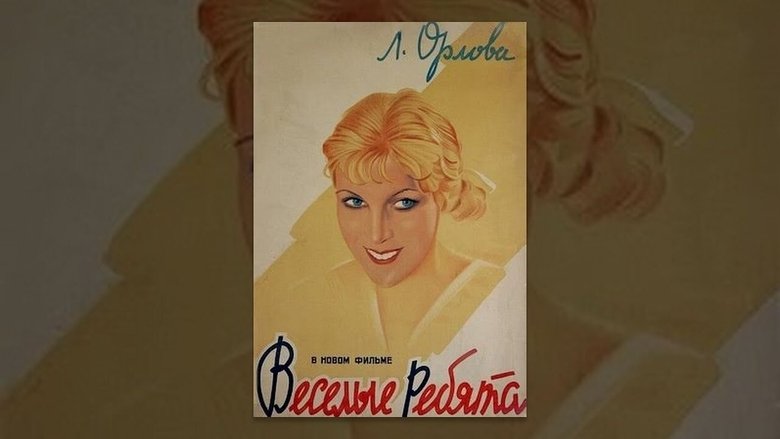
Jolly Fellows (1934)
Merry Fellows was the first Soviet musical comedy. Set in Odessa and Moscow in the 1930s. Shepherd Kostya Potekhin (Utyosov) is mistaken for an international concert star. He falls in love with Anyuta (Orlova) and plays the "star" for her. In a cascade of comic musical numbers he becomes the leader of a Jazz-Band and gives a hilarious show at the Odessa Music Hall. Now he is destined to perform at the Bolshoi Theatre in Moscow.
Watch Trailer
Cast


Similar titles
Reviews
I don"t understand the users who have written these reviews. This film is idiotic, amateurish and mendacious. Look at that those first ten minutes! Those rich and happy peasants! It was made in the years after the time when the entire country was hit by epidemics and famine. Millions died and suffered.from mass repression. According to this film this was the time of happy peasants and funny musicals. So the word "lovely" sounds a bit weird.
music, acting, humor, message, image. it is more than a comedy. or music hall. it is a travel in time. not for its venerable age but for its time. because, in dark period of Stalinism, this demonstration of pure joy, this manifesto of profound freedom is unique. sure, not extraordinary script and the waves of songs are essential virtue. but it remains special. for the gorgeous naivety with flavor of childhood adventure. for memorable scenes. for the impressive demonstration of animal tights. for drops of love and, sure, for extraordinary voices. and, at first sigh, it is enough. but, after each new view, it is different. out of charming atmosphere it is strange tension. and testimony of a form, subtle, delicate, special of courage. because it is one of films - letter for future.
I was surprised about this picture , especially the year it was made. Due to the economical problems in Russia at the time , Russia was late in putting sound equipment in the theaters . You see I had seen at the Egyptian theater , Hollywood, a silent picture about Russia going to the moon. Guess when it was made ?1935 with sync sound affects and music no dialog but title cards. Russia was late in the sound era thanks to Communism.But since Iv'e been used to seeing only the most worlds famous success international Russian film classics, like Ivan the terrible,I thought all Russian films were like those of Esiensteidt, Sergie that is.With messages only.The greedy big distributors of classic films only want to release in United states ,only the most successful classic for the fast buck.Leonid Utyosov plays a Charlie Chaplin type character . A successful Shepard. You see him marching down the village with his farm animals singing.Later he does a roll call and all the animals respond. It be difficult for him to butcher any of these animals for food cause he's too attach to them.Well, after that his father shows up and ask him to study his violin lessons. all of a sudden in his close up he changed , his hair was automatically neatly combed, plays the violin. The peasant girl ,played by Lyubov Orlova, is admiring him and is in love with him. After his lessons he jumps in the ocean for a swim. He ends up at the tourist side of the beach . He meets a dark hair women, he never tells her that he's a Shepard,she thinks he's just a musician. She invites him to her party but all his animals start to follow him. He discovers that the peasant village girl works at in her house. So when the record player breaks down he's asks to play music .He plays the flute with piano accompanies with. But all of a sudden this influences his animals to come into the house a wreak havoc with the dining room. They start to enter the living room and he stars to notice it as the peasant girl comes out to bring some plants. He signals to her whats behind her . she notice's. One of his cows . She pulls it back and tries to kick it out of the house.Finsally the guest notices it and they wreak havoc the camera speeds up for the comedy effects . Destroying the property of the house and the Shepard trying to get his animals out of the house. The women later finds out he's a Shepard and rejects him. Out of the place as he gazes at the sea he expresses frustration about being a Shepard to the peasant girl who's trying to let him know She's in love with him. He decides to leave for the big city . He arrives in front of the art deco theater where he plans to get a job as a musician. But he's pushed into the theater thinking he's one of the workers to send flowers.Havoc is wreaks again as he being chased by the security . He goes to the dressing room of the orchestra leader and disguised him self . Being chased by the guard he ends up at the stage being forced to conduct the orchestra. He notice's that the women he's in love with is at the balcony watching the show.She notice's him and throws him a flower.He's a hit, only to be chased by the security guard. Some musicians rescue him and he joins their jazz band . Durring rehearsals one of the musicians have an argument with another and it turns into a slapstick speed ed up fight.In which after that fight they all go to doing a job for an advertisement for funeral service only to discover that the peasant girl is in town. All of them going to a theater that they have an engagement at. Their instruments broken cause of the fight . They star to impersonate instruments.The peasant girl turns into a 1934 show girls and sings and dances. ending up with a choruses of ballet dancers.Now you can say that this film had some propaganda the Shepard and the peasant girl. the upper class beach and the upper class girl he fell in love with . He wreaks havoc with the upper class. But peasant life versus city was cultural fact in Russia and Charlie Chaplin shorts where released in that country too. Obviously copying Chaplin antics about the poor messing things up with the rich any how,Advetures of Tillie. That wasn't communist propaganda a . Too bad TCM is greedy to premiere this on TCM import.But it isn't a worlds famous film. Revenge of the camera man is etcetera,
This first Soviet musical comedy on film still shows signs of silent era mentality, mainly because the sound is so poorly coordinated with the picture, as if it were an afterthought, but also because the gags are predominantly visual. You'll wince at many of the shots too, especially those close-ups of the actors delivering each single line -- it's hard to be subtle when the camera's 18 inches from your face. Also obvious is the political subtext -- a jolly peasant demolishes the upper crust's airs and way of life. It's interesting that, in this as in many Soviet films that try to be light-hearted, food and drink fairly tumble off the screen, as if to feed those in abject poverty who have come to watch it.For all that, the director, Grigori Aleksandrov, challenged himself and his crew with some awesomely complex shoots. The opening scene of the shepherd marching his animals out of the pen and through the farmland, past peasants and workers, is quite lengthy, but only involves four takes spliced subtly together. (Oh, but would the sound have matched better!) Similarly, the would-be female singer strolls down the beach past a cornucopia of beach activity, some in the extreme foreground, some mid-field, some in the back behind her. It's one long take, and yet it manages to be interesting and funny at times, and it even manages to set up a later gag while it's at it.And the music: It's jazz from the acoustic era, with tubas providing the bass line, pretty quaint and good-timey. But about half of the music in the soundtrack is full orchestral material composed by Isaak Dunayevsky, with a rousing salute to the simple peasant life getting a full-blown treatment both at the beginning and the end of the picture, the equivalent of Socialist Realism for music. It's a great little melody you can whistle on the way home as you wonder where your next meal will come from.


